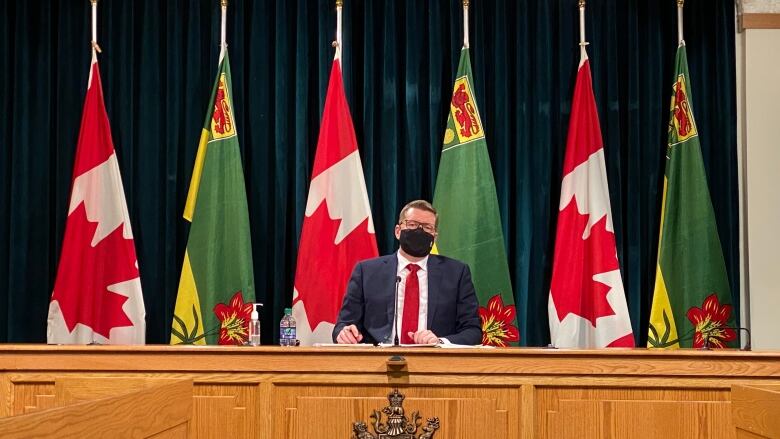No new measures against COVID-19 even as Saskatoon is 'on red alert'
Saskatoon announced more new cases of COVID-19 on Tuesday than Regina

No new measures to reduce the spread of COVID-19 are being announced in Saskatchewan — even as the province's chief medical health officer says Saskatoon is "on red alert" following the city's "very concerning" uptick in new cases.
On Tuesday, the Saskatoon area reported more new cases of COVID-19 than Regina, which has led all areas of the province in new infections since variants of concern began dominating during the third wave.
Officials recorded 70 new cases in Saskatoon on Tuesday, compared to 30 in Regina. Only the previous day, the situation was essentially reversed, with Regina reporting 80 new cases versus Saskatoon's 39.
Saskatoon also took the lead in new cases of variants of concern and recorded its first case of the highly-transmissible P1 variant of concern associated with Brazil, which has yet to be confirmed in Regina.
The abrupt switcheroo between Saskatoon and Regina came the day after University of Saskatchewan researchers flagged an alarming spike in viral load in Saskatoon's wastewater — a finding they said potentially augurs a significant impending increase in COVID-19 cases in Saskatoon.
During a COVID-19 news conference on Tuesday, Premier Scott Moe said that while there have been discussions about ensuring there are enough vaccines in Regina and Saskatoon to protect those cities' ICU capacities, the province has not had conversations about benchmarks for tightening measures in Saskatoon.
Opposition Leader Ryan Meili said the government should have taken action in Saskatoon two weeks ago.
"It's incredibly, incredibly short sighted. It's going to kill people. And that was completely avoidable," Meili said.
Saqib Shahab, the province's chief medical health officer, makes recommendations but the Saskatchewan government ultimately decides whether to enact new measures.
Shahab said the rules already in place, including a ban on restaurant dining in Regina and a provincewide clampdown on mixing between households, are already very strict.
"I think Saskatoon is on red alert status and if required, specific measures may be needed," Shahab said. "But at the end of the day, it is [about] the individual actions, especially care when we're out and about. Minimize unnecessary visits to public indoor places, order more takeout, use curbside pickup whenever you can.
"At the same time, [we need to] make sure the pace of vaccination remains high."
Shahab also strongly encouraged anyone who can work from home to do so, citing a high preponderance of transmissions within workplaces.
"We absolutely don't want to see the surge that we saw in Regina happen in Saskatoon," he said.
That surge took place in spite of the tightened measures in Regina, which also included a strong recommendation against travel in and out of the city.

The surge has been most keenly felt in Regina's intensive care wards.
On March 28, the day the ban on in-restaurant dining went into effect, the Regina area had 59 COVID patients in hospital, including 17 people under intensive care.
On Monday, the area had fewer people in hospital (57) but a higher proportion of them were in ICU (27).
Many patients too young to get vaccinated
Scott Livingstone, the CEO of the Saskatchewan Health Authority, said many people currently hospitalized with coronavirus variants of concern are not immunized because they're not old enough.
"Or they actually meet the criteria for age-based vaccination while they're in hospital with COVID so they're not being vaccinated," Livingstone said.
On Wednesday, the age eligibility for booking a COVID-19 vaccine appointment is dropping to 42 and will drop to 40 on Friday.
As for benchmarks that might position Saskatchewan closer to lifting broad COVID-19 restrictions, Moe said he watches the province's fatality rate.
Saskatchewan has recorded 476 deaths related to COVID-19 since the pandemic began.Two-thirds of those deaths, or 323 of them, have happened in 2021.
Moe said hospitalizations and ICU admissions are also monitored.
"Ultimately, what drives both of those metrics is our vaccination rate," he said.

